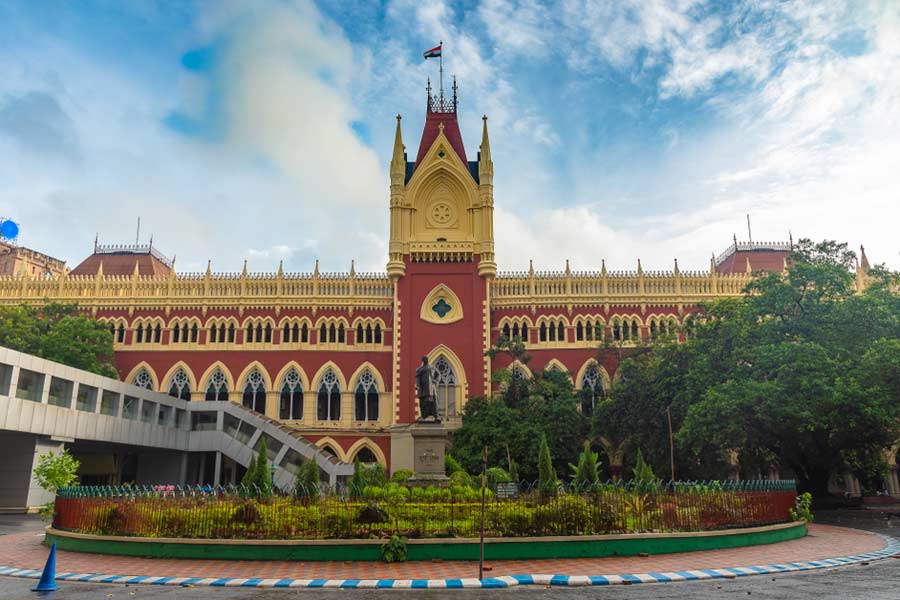The high court on Monday directed the state school service commission to undertake a fresh selection process, preferably within a fortnight of the date of the declaration of the results of the Lok Sabha elections, for the school posts that will fall vacant after over 25,700 candidates will lose their jobs.
A division bench of the court told the commission that “evaluation and scanning of OMR (Optical Mark Recognition) sheets shall be made by SSC by open tender” after “declaring the eligibility criteria and other terms and conditions of the contract”.
Lawyers connected with the case and officials of the school service commission said they were yet to understand whether the court spoke about the evaluation and scanning of the OMR sheets of the state-level selection test held in 2016 or suggested a fresh written test.
The confusion, they said, remains as the court said it was scrapping the jobs of all those who had been recruited based on the 2016 test because it could not determine how many had been recruited legally and how many illegally.
“We could not understand whether the court is telling us to hold a fresh written test or scan the OMR sheets of the earlier examination to determine how many had been fairly recruited. We are still studying the order,” SSC chairman Siddhartha Majumdar.
“Since we have decided to move the Supreme Court against the order of the division bench, we might take up this matter (confusion) with the apex court.”
The division bench, of Justice Debangsu Basak and Justice Mohammad Shabbar Rashidi, said in its order: “Appointments for preparation, evaluation and scanning of OMR sheets shall be made by SSC by open tender and after declaring the eligibility criteria and other terms and conditions of the contract. SSC shall follow the rules governing the selection processes in letter and spirit.”
The order said: “OMR sheets available in the three hard disks… must be uploaded on the website of SSC forthwith and made available to the public for viewing.”
The hard disks are said to have been seized during a raid by the CBI on the premises of Pankaj Bansal in Ghaziabad, Uttar Pradesh, in connection with the probe into the irregularities in appointments.
Bansal is a former employee of NYSA, a company that was engaged for the evaluation of OMR sheets.
Those hard disks had scanned images of the OMR sheets and the marks.
“On comparison of the data seized from SSC during investigation and the data contained in the 3 hard disks seized during the investigation from the premises of Mr Pankaj Bansal it was found that there had been huge number of manipulation/mismatches in the evaluated marks of OMR sheets pertaining to all 4 categories of the selection process,” says the court order.
The SSC chairman said the commission gave a report to the court in March on how many candidates had been appointed through alleged manipulation of marks and jumping of ranks.
The SSC’s report to the court said 4,327 candidates had been appointed allegedly through unfair means to Group C and D posts and as teachers.
“We are at a loss to understand why, despite getting this specific data, the court came to the conclusion that all 24,600 candidates, both teaching and non-teaching staff, had to lose their jobs (the rest of the candidates who are set to lose their jobs had been recruited after the expiry of the panel). We are at a loss to understand what the court wants us to do — whether it wants us to hold a fresh written test or scan the OMR sheets of the previous examination so we can determine how many from the pool of 24,600 had been fairly recruited,” said the SSC chairman.
He said about 23 lakh candidates had written the selection test in 2016 for teaching and non-teaching posts. “We don’t have the OMR sheets of all these candidates,” said Majumdar.
Sudipta Dasgupta, a lawyer representing the “deprived” candidates who challenged the recruitments, said: “It was not clear from the court order whether it wanted the SSC to hold a fresh selection test or suggested something else.”
A teacher in South 24-Parganas said: “The court order says as it could not separate the genuine from the bad, the entire panel was cancelled. But it does not say anything about how the genuine candidates will be compensated.”
Candidates holding a1,335-day protest against the corruption in recruitments initially reacted to the order with joy. But later theirreactions became more tempered.
One of them said: “We don’t want to write fresh tests. Those below our ranks had been recruited fraudulently. But the court order does not say anything about how and when we are going to get the jobs.”
